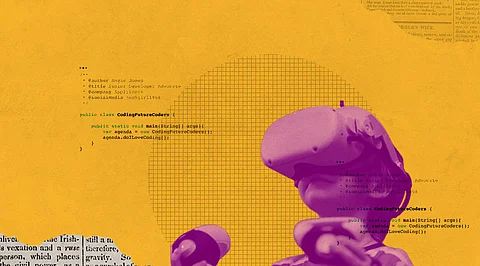Our Kids Need Tech Skills; Our Teachers Need the Right Tools

Gaining tech skills will prove extremely efficient for the future of the children
Sixty-five percent (65%) of children entering primary school today will end up working in jobs that have yet to be created. How can we prepare our students for a future we can hardly imagine ourselves?
Our teachers and administrators face unprecedented challenges in the coming years. And no crystal balls are commercially available to help us make all of the right predictions for charting a path forward. The popular estimate cited above demonstrates the urgency of developing a modern curriculum that meets the demands of a quickly evolving digital world while making sure teaching staff are equipped with first-rate tools to prepare our students for unprecedented change.
We know that our children will need to be tech-savvy to thrive in tomorrow's digital economy. Business leaders are already warning us of the near and present danger of a tech worker shortage. One million tech jobs globally go unfilled at present. A report by Skillsoft found that 76 percent of IT decision-makers worldwide are facing critical skills gaps in their departments – a 145 percent increase since 2016. By 2029, the US Bureau of Labor Statistics tells us the employment of tech talent is projected to increase 22 percent.
We need to take bold action to deliver education that prepares our kids for the many challenges that lay ahead of them. To do this, we must critically assess the tools we have as educators and determine what kind of upgrades are required to survive and thrive in a world we can only imagine. But who is going to teach our children these new digital age skills? Not only is there a shortage of technology workers, but there is also a shortage of teachers equipped to deliver robust tech education.
In Romania, where our technology sector is booming, we are taking proactive steps to make sure that the industry that has helped transform our economy stays on track. We are working to ensure that all of our teachers, from our capital of Bucharest to our rural expanses, are equipped to teach the skills of the future.
Three years ago we began an ambitious pilot program with 1,600 teachers and 50,000 middle school children to engage them in STEM (Science, Technology, Engineering, and Math). We built a customized adaptive learning platform using artificial intelligence and other modern technologies not only to teach coding but to enable students to see how transformative new digital tools can be. Including robotics in our program truly captured the attention of our young people.
Introducing robotics in school is not easy due to the cost of equipment, the practical work required from teachers to keep all electronic components under control, and other barriers.
But by using adaptive e-learning, a learning process in which the content is taught based on the student's learning style or preferences, we achieved in three years more than what conventional e-learning processes achieved in decades.
We established our own robotics competition to raise awareness of our program; the metrics from participants demonstrate our students' enthusiasm. We started with 3,000 participants in 2019 and surged to 44,500 by 2021. And donations followed from the private sector excited about the cool things our students were doing with robots. We had very few donors in 2019, but by 2021 we received major support from a bank, an automotive group, a private foundation, and even a Taiwanese computer company. Our pilot program will be rolled out nationwide in 2023.
While the instruction was AI-driven, we know that its ultimate success rests in the hands of our nation's teachers. The need to motivate students to engage with the program can't be underestimated nor can the emotional support essential to push forward be undervalued.
The prospect of recruiting and training instructors to teach robotics at this level for hundreds of thousands of young people without an adaptive learning platform would require a Moonshot effort. It simply is not feasible for the reasons of time, money, and lack of specialist instructors. We hope educators in the United States and around the globe continue to explore and develop solutions that enable tomorrow's workforce and inspire them to new heights.
Author:
Razvan Bologa is a professor in the Computer Science and Cybernetics Department at the Bucharest University of Economic Studies with a research interest in knowledge management, artificial intelligence and digital education. He is co-founder and CEO of NextLab.tech. https://nextlab.tech/english/


